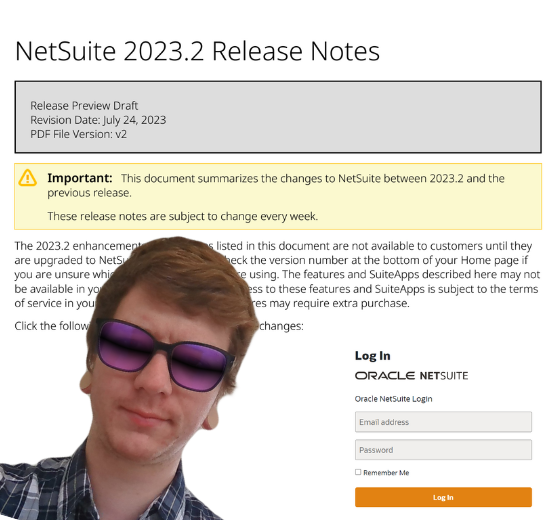As lockdown lifts – with many a ‘closed’ door sign finally flipped over – the nation is slowly but surely getting back to work. Yet despite these positive steps, the road to recovery post-pandemic is guaranteed to be a long one, and will almost certainly look different for each and every business. With no ‘one-size-fits-all’ solution, yesterday’s quick fixes will no longer be fit for today’s now-familiar landscape. SMEs hoping to reboot and rebuild beyond 2020 will not only need to pivot their current offerings but adopt agile, more transparent operations so as to connect the dots – often across entire business structures – in order to maximise efficiency and thus improve productivity.
So where does Enterprise Resource Planning (ERP) and Customer Relationship Management (CRM) come into it, and how can these solutions make a tangible difference to businesses both in the short and long term? With much of this technology-reliant upon data (and how leaders choose to leverage it), we explore a handful of platforms empowering businesses with the right tools to weather the storm that is COVID-19 – while also considering the key issue of sustainability, and how these solutions are innovating to help support businesses now and in the future.
Power to the platform
“Ultimately, it’s going to be about man with machines” explained Microsoft CEO Satya Nadella at its annual Build Conference in 2016. Fast-forward four years and, while a lot may have changed, the need for technology with “built-in protections for privacy, transparency, security as well as compliance” has never been more prevalent.
Built on the Common Data Service for Apps (CDS) – a secure database hosted in the Azure Cloud – solutions like Microsoft Power Platform aim to do exactly that, combining PowerApps (for creating custom business apps), Power BI (for visualising data), and Power Automate (for business process automation, formerly Microsoft Flow): the integration of three core tools under one roof.
- PowerApps – Enabling businesses to build customised canvas, model-driven and portal apps that connect with their stored data, PowerApps is so sleek that creators might feel like they’re working with PowerPoint. Helping companies transition to an automated way of working, PowerApp admins also have access to Common Data Service analytics via the Power Platform admin centre.
- Power BI – Helping businesses make intelligent decisions based on data, Power BI allows users to visualise data for deeper insight – with useful guidance on how to act on it. Visiblevia a central dashboard, teams can create, analyse, share and export informative reports in line with their brand KPIs, and gain further understanding with AI-powered answers to business-related questions; all while maintaining accuracy, consistency and security.
- Power Automate – Previously Microsoft Flow, Power Automate is the ultimate tool for blasting through tasks using robotic process automation (RPA). With built-in AI capabilities and seamless integration, Power Automate transforms manual, error-prone activities into slick, time-saving workflows – helping businesses focus their efforts elsewhere while boosting efficiency and productivity.
Operating via this common data model, Microsoft Power Platform gives users swift access to key information and, more importantly, a single version of truth from that data. Designed to empower data-driven organisations with an enterprise-grade dashboard, the self-service approach of Microsoft Power Platform makes it easy for businesses (minus their IT departments) to grasp with little to no coding required – whether shaping seamless new workflows or harnessing the power of AI.
Embracing a new dynamic
Using predictive, AI-driven insights, Microsoft Power Platform is joined by connective business cloud Microsoft Dynamics 365. Encompassing both CRM and ERP applications, Microsoft Dynamics redefines the bigger picture by placing business and customer data side by side. Not only does this empower businesses to get more from their data – enabling the flow of continuous insight – but it also provides actionable guidance, which in turn converts to enhanced productivity.
With a scalable system in place, integrated CRM strengthens the process of customer engagement while the data collected allows businesses to analyse customer sentiment, buying patterns and brand loyalty to help teams provide a more personalised customer experience. The seamless sharing of data enabled by a single source of truth builds connections across entire departments, with both customer and business insight to guide next steps – while driving growth for the future. This paired with seamless Cloud deployment (on-premises or off) makes Microsoft Dynamics 365 a flexible, results-driven option for businesses – whether scaling up or down.
Futureproofing business
In response to COVID-19, the tools within Power Platform continue to offer valuable support for customers, such as Power Automate’s Crisis Communication templates and the Emergency Response solution for healthcare professionals with the management of multiple aspects – from patients to equipment. In a significant move to help medical workers receive coronavirus test results more swiftly, Microsoft Teams has enabled NHS staff to access real-time data on their smartphones as soon as the lab makes it available. Trialled by staff at University Hospital Southampton, neurologist Dr Ashwin Pinto adds: “We can know where that patient is, so we can make sure they go to the right care environment and that staff are safe as well. That’s been transformational.”
To modernise business processes, while helping customers adapt to remote working, Power Platform has also made it easier for users of Microsoft Teams to collaborate though integrated apps and workflows; updates include one-click integration, automated @mentioning, and adding chatbots to Teams from Power Virtual Agents.
A Suite story
Akin to the fast-moving, reactive efforts of Microsoft, Oracle NetSuite is also working to support its clients on the road to recovery. As businesses work to rebuild the global economy, one such lifeline includes the introduction of the Workforce Case Interaction SuiteApp – designed to protect both colleagues and customers as physical working locations begin to re-open. With safety a key priority, the app allows NetSuite users to create and track face-to-face interactions with those suspected of contracting COVID-19. Authorised managers of the app (such as HR departments) can then manually record these interactions via NetSuite, which then generates a list of potential interactions an infected employee has had based on the location of that individual and the time of entry. Armed with this data, businesses are then able to respond quickly with a list of at-risk contacts reachable through customised email distribution. Supporting organisations adhere to government-related safety orders, Workforce Case Interaction SuiteApp is one of many innovations designed to help both businesses and customers safely adapt to the new economic climate.
Helping even the smallest of start-ups make smarter decisions, NetSuite continues to deliver agile tools for businesses through times of crisis and beyond. Bringing workforces closer together (even while operating apart), SMEs can benefit from a fully integrated, tailored solution that finds efficiency in everyday processes. Wherever you are on your journey, whatever the pace, our team of expert are ready to assist you. Get in touch with your questions today.
Keep reading

What is a NetSuite implementation partner? How do you choose one?

Technology fit for total customer service in 2024

Retail and wholesale distribution: how to improve supply chains

Ditching Sage 1000: what you need to know from businesses that have done it

6 ways AI-ready Microsoft Dynamics 365 helps chartered associations serve members

6 retail and wholesale distribution challenges and how NetSuite solves them

The most exciting features in Microsoft Dynamics 365 2023 Release Wave 2

How to manage a new NetSuite Release: one expert's update process

What’s in NetSuite Release 2023.2?

